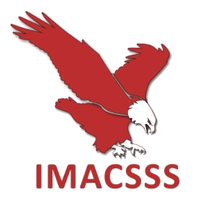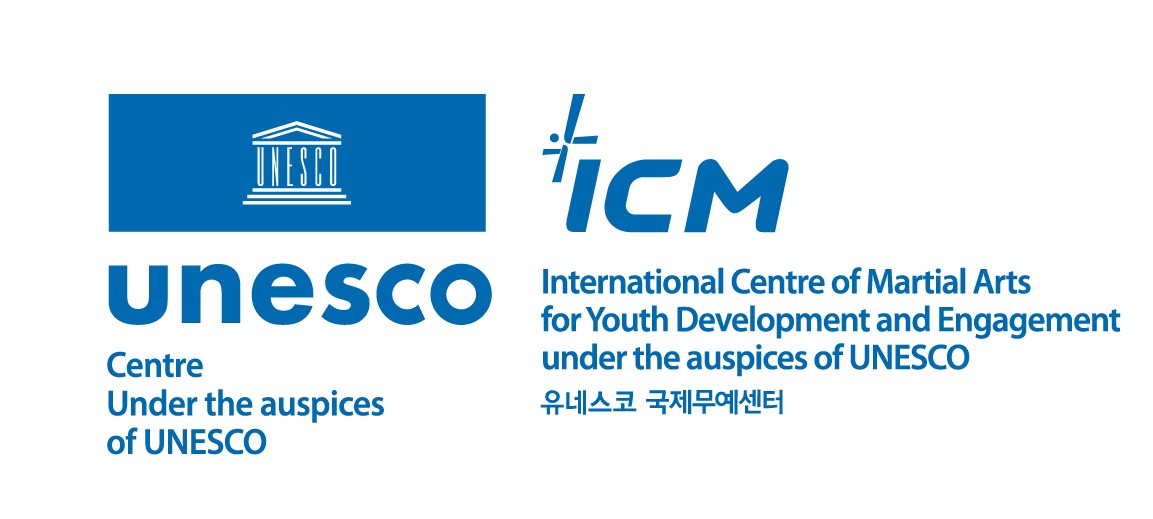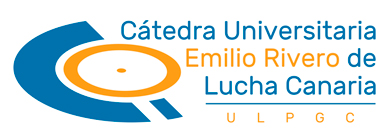Key dates
Registration
February 1, 2025: Start of early registration.
April 15, 2025: Deadline for early registration.
June 2, 2025: Closing date for registration.
Submissions
January 15, 2025: Start of abstract submission.
March 31, 2025: Deadline for abstract submission.
April 15, 2025: Deadline for notification of abstracts acceptance.
Schedule
Wednesday 9 July
09:00-9:30 Reception and registration of participants
09:30-10:00 Inauguration of the Conference
10:00-11:00 Opening Lecture
- Thomas Green. An Anthropological Perspective on Martial Culture: Performance, Politics, and Piety
11:00-11:30 Coffee Break
11:30-12:30 Communications – Sessions 1A & 1B (see below)
12:35-13:35 Communications – Session 2A & 2B (see below)
13:35-15:00 Lunch
15:00-16:15 Workshops / Seminars
- José Morales. Combat sports as an inclusive tool: outcomes and adapted practices for people with intellectual disabilities
- Bayram Ceylan. Hydration and hydration monitoring in combat sports
16:15-16:45 Coffee Break
16:45-18:00 Workshops / Seminars
- Raúl Sánchez-García. Ethnographic research 1: Getting started with fieldwork
- Luis Santos. Velocity-based resistance training in combat sports: methodology for the one-repetition maximum (1RM) test
19:30-21:00 Cultural Programme
- Guided visit to the Basílica de San Isidoro
- Touristic walk around the city center
21:00-23:00 Congress Dinner – De tapas in León
Thursday 10th July
09:00-10:00 Good morning workshop: Leonese wrestling
10:05-11:05 Communications – Session 3A & 3B (see below)
11:05-11:30 Coffee Break
11:30-12:30 Communications – Session 4A & 4B (see below)
12:35-13:35 Communications – Session 5A & 5B (see below)
13:35-15:00 Lunch
15:00-16:15 Workshops / Seminars
- Alex Channon. Ethnographic research 2: Confronting ethical problems
- Emerson Franchini and Monica Yuri Takito. Post-activation performance enhancement (PAPE) in combat sports
16:15-16:45 Coffee Break
16:45-18:00 Workshops / Seminars
- Zdenko Reguli and Jitka Reguli Čihounková. Preparing and assessing reality-based self-defense scenarios.
- George Jennings. Ethnographic research 3: Representation through writing
18:05-19:00 Cultural Programme
- Exhibition of Leonese wrestling, Canary Islands wrestling and Historical Polish martial arts
21:00-23:00 Official Congress Dinner
Friday 11 July
09:00-10:00 Good morning workshop: Canary Islands wrestling and Historical Polish martial arts
10:05-11:05 Communications – Session 6A & 6B (see below)
11:05-11:30 Coffee Break
11:30-12:30 Closing Lecture
- Emerson Franchini. Present and future challenges in combat sports training research
12:30-13:00 Closing of the Conference
* Note: Lunches and dinners on Wednesday and Thursday, as well as the coffee breaks indicated in the programme, are included in the registration fee.
Sessions
|
WEDNESDAY 9 JULY, 11:30-12:30 |
||
|
COMMUNICATIONS – SESSION 1A |
COMMUNICATIONS – SESSION 1B |
|
|
Miso LEE — Contributing to a Well-Being and Cohesive Humanity Through Martial Arts: Possibilities of Collaboration with the International Centre of Martial Arts for Youth Development and Engagement under the auspices of UNESCO |
Danilo França CONCEIÇÃO-SANTOS, Juliana MURASAKI, Larissa COSTA, Emerson FRANCHINI — Relationship between rapid weight loss and rapid weight gain strategies and medal success: differences between junior and senior athletes |
|
|
Siti Nazariah Hj. ABDUL RAZAK — Constitution, Regulations & Acts; Martial Arts Associations Towards Pure Governance Based on the National Sports Policy in Malaysia |
Natalia MORENO-FROJÁN, Diego PENA-PÉREZ, Xurxo DOPICO-CALVO, Marta SEVILLA-SANCHEZ — Prevalence of RED-S in female combat sport athletes: A rapid review |
|
|
Maria Perrino PEÑA, Juliana Aparecida de Oliveira CAMILO, Carolina Martina, HAMODI GALÁN — Decent Work Challenges and Opportunities in Professional Boxing: A Case Study Analysis |
Raquel Ueza da Silva NASCIMENTO, Luiz Gustavo Bonatto RUFINO, Grazielle Helea Maciel da SILVA, Arthur Sant´Isabel Santiago MARQUES — The Culture of Weight Loss in Combat Sports: A Pilot Study |
|
|
Emily DOBRICH —Sharing Our Strengths: Findings from a Women’s Community Building Project Using Muay Thai |
Uğur SARIKAYA, Hasan Basri TAŞKIN, Furkan ÖZTÜRK, Bayram CEYLAN, Şükrü Serdar BALCI — Rapid weight loss prevalence, magnitude and methods in cadet judo athletes |
|
|
|
||
|
|
||
|
WEDNESDAY 9 JULY, 12:35-13:35 |
||
|
COMMUNICATIONS – SESSION 1A |
COMMUNICATIONS – SESSION 2B |
|
|
Jose MORALES — Enhancing dietary behaviors through judo and innovative tools in youth with intellectual disabilities: JUDODI project |
Bayram CEYLAN, Hasan Basri TAŞKIN, Furkan ÖZTÜRK, Uğur SARIKAYA, Şükrü Serdar BALCI — Effect of different contest area sizes during tachi-waza randori on cardiovascular and perceptual load in prepubescent judokas |
|
|
Vanesa CASTRO-SALGADO, Zuriñe GAINTZA, Arkaitz LAREKI — Intellectual disabilities and Taekwondo: differences in motor abilities by gender |
Luis SANTOS, Elena POCECCO, Xurxo DOPICO-CALVO — Association analysis between the type of shido and the contest event in the elite male and female judo divisions, both without and considering when the contest ends |
|
|
Alex CHANNON, Julie MORGAN, Jörg HUBER — ‘Jiu jitsu is my therapy’: Comparing mental health outcomes of BJJ and CrossFit training among military veterans and emergency services workers |
Cristina RODRÍGUEZ, Rubén MANEIRO, María PERRINO — Technical-tactical patterns in professional judokas according to weight class and sex: A case study |
|
|
Nicole MAUSSIER, Emanuela PIERANTOZZI, Angela MAGNANINI — The inclusion of autistic children in school through judo and karate: a pilot study |
David MORONTA PEÑA, Bibiana CALVO RICO, Alex PATRICIO OJEDA, Jose M GARCIA GARCIA — Results of the Most Frequently Used Nage-Waza and Katame-Waza Techniques by Male Judokas in the Olympic Games (2008-2020): A Quantitative Approach to Competitive Success |
|
|
Yan Lázaro SANTOS, Thabata Castelo Branco TELLES, Carlos GUTIÉRREZ-GARCÍA, Cristiano Roque Antunes BARREIRA — On the first fights: Disruptive experiences and personal development on beginner practitioners of martial arts and combat sports |
||
|
|
|
|
|
THURSDAY 10 JULY, 10:05-11:05 |
||
|
COMMUNICATIONS – SESSION 3A |
COMMUNICATIONS – SESSION 3B |
|
|
Mariana Simões Pimentel GOMES, Luiz Gustavo Bonatto RUFINO — Martial Arts and Combat Sports in Brazil: A Brief Historical Overview of Teaching and Learning Pathways |
Gregor NOVAK, Damir KARPLJUK, Sara BESAL, Nik MAHNIČ, Vedran HADŽIĆ, Jožef ŠIMENKO — Exploration of Sport-Specific Isometric Performance and Its Association with Morphology in Young Judokas |
|
|
Grzegorz KOZDRAŚ — A Comparative Analysis of the Expectations of Children, Parents, and Coaches Regarding Judo Training: Similarities, Discrepancies, and Potential Sources of Conflict |
Mathías LÓPEZ-CÓRDOBA, Guillermo MADRUGA-SANTOMÉ, Paulo VARELA-AMBOAGE, Diego PENA-PÉREZ, Álvaro RAMÓN-ÁVALOS, Natalia MORENO-FROJÁN, Eduardo CARBALLEIRA — Training-load monitoring system applied to combat athletes: A low-cost practical proposal for young judokas |
|
|
Fabien PEREIRA DA SILVA, Agata Cristina ARANHA, Jefferson LOPES CAMPOS, Leonardo GONÇALVES RIBEIRO — Determination and Comparison of Different Teaching Models in Brazilian Judo |
Diego PENA-PÉREZ, Hugo GUERRERO-GONZÁLEZ, Álvaro RAMÓN-ÁVALOS, Natalia MORENO-FROJÁN, Guillermo MADRUGA-SANTOMÉ, Paulo VARELA-AMBOAGE, Mathías LÓPEZ-CÓRDOBA, Eduardo CARBALLEIRA — Velocity and endurance evaluation of upper-limb strikes: A proof-of-concept protocol based on accessible kinematic analysis |
|
|
Cássia dos Santos JOAQUIM, Leopoldo Katsuki HIRAMA, Diego Alves Ribeiro QUEIROZ, Mariana Simões Pimentel GOMES, Paulo Cesar MONTAGNER — Interacionist Proposal for Teaching Judo: Construction of Nage-waza |
Martin BUGALA, Jiří VÁLEK — The Impact of Sleep Deprivation on the Performance of Security and Armed Forces of the Czech Republic: a pilot study |
|
|
|
Roberto RUIZ-BARQUÍN, Blas Dennis DÍAZ-VALENZUELA, Carlos GUTIÉRREZ-GARCÍA, Marta ZUBIAUR-GONZÁLEZ — Description of resilience levels in combat sports |
|
|
|
||
|
THURSDAY 10 JULY, 11:30-12:30 |
||
|
COMMUNICATIONS – SESSION 4A |
COMMUNICATIONS – SESSION 4B |
|
|
Lavínia SILVA, Luiz RUFINO, Mariana Simões Pimentel GOMES — The Development of “Fighting Knowledge” in Judo Teaching: A Practical Analysis in University Extension |
Andrés LÓPEZ OJEDA, Carmen PÉREZ CAMACHO — The Touristification and Transnationalization of the Popular: the case of Mexican Wrestling |
|
|
David B. GLOVER — Becoming Imperceptible: Martial Arts as a Praxis for Cultivating Ecological Awareness in a Disconnected World |
Mohamad Nizam Mohamed SHAPIE, Mohad Anizu Mohd NOR, Mohamad Rahizam ABDUL RAHIM, Nurul IHSAN, Ardo OKILANDA, Jamiaton KUSRIN, Muhammad Faizal Kutip, Khairun Nizam MOHAMMAD YUSUFF, Raja Mohammed Firhad RAJA AZIDIN — Silat Between Tradition and Evolution: The Influence of International Academic Engagement |
|
|
Leonard MARYNOWSKI, Paweł MICHALEC — The Impact of Singlestick / Palcat Training on the Motor Fitness of Seniors: A Sixteen-Week Follow-up Study |
María José MORALES-GÁZQUEZ, María Magdalena MARRERO MONTELONGO, Daniela Celia MONTESDEOCA-RAMÍREZ — Lucha Canaria from an intergenerational perspective. A phenomenological approach based on a family of wrestlers |
|
|
Jan NOVÁK, Dalibor HANÁK, Adam SLATINSKÝ, Marta GIMUNOVÁ, Michal BOZDĚCH — The Influence of the Stress Response and Motor and Related Factors on Self-defense Performance and Survival of Assaulted Men and Women Intoxicated by Alcohol |
Raúl SÁNCHEZ-GARCÍA — A process model to analyse the development of martial arts/combat sports: the case of Brazilian jiu-jitsu in USA |
|
|
Diego Alves Ribeiro QUEIROZ, Leopoldo Katsuki HIRAMA, Cássia dos Santos JOAQUIM, Mariana Simões Pimentel GOMES, Paulo Cesar MONTAGNER — Subjective perception of opposition and the development of fighting knowledge in judo |
María Magdalena MARRERO-MONTELONGO, Daniela Celia MONTESDEOCA-RAMÍREZ, María José MORALES-GÁZQUEZ — Experiences in Canarian wrestling and health perceptions. A phenomenological study |
|
|
|
||
|
THURSDAY 10 JULY, 12:35-13:35 |
||
|
COMMUNICATIONS – SESSION 5A |
COMMUNICATIONS – SESSION 5B |
|
|
Gustavo Goulart Braga MAÇANEIRO, Emerson FRANCHINI — Historical Development of Women’s Participation in Sports and the case of Brazilian Judo |
George JENNINGS — Folklore and Foundation Myths in Chinese Martial Arts: Testing the Theory of Martial Creation |
|
|
Jakub POKOJSKI — Not only with a saber. The art of using lances by hussars in the 16th-17th centuries in the fight against the unbreakable – foot formations of pikemen |
David Sebastian CONTRERAS ISLAS, Emily DOBRICH — Becoming a Martial Arts Researcher: A Comparative Critical Autoethnography of the Experiences of Two Early Career Researchers |
|
|
Raúl SÁNCHEZ-GARCÍA — A critical appraisal of the British origins of modern combat sports: the case of sumō in Japan |
Abel FIGUEIREDO — Narrative Technologies in Martial Arts: Karatedō Kata Tenshō interpretation Using Ricoeur’s Hermeneutics |
|
|
Stefania SKOWRON-MARKOWSKA — “This is how real warriors train” – a picture of training and practice of Asian martial arts in Poland in the 1980s and 1990s on the example of selected magazines |
Lozovyy ANATOLIY — Traditional principles in modern karate: experience of the Gosoku Ryu in Ukraine |
|
|
|
||
|
FRIDAY 11 JULY, 10:05-11:05 |
||
|
COMMUNICATIONS – SESSION 6A |
COMMUNICATIONS – SESSION 6B |
|
|
Noel Adrian CASTILLO — Measuring the social and emotional skills of Hispanic American students in an afterschool karate program |
Maria Gabriela dos SANTOS, Thabata Castelo Branco TELLES, Cristiano Roque Antunes BARREIRA — Disruptive Situations and the Development of Practitioners in Martial Arts and Combat Sports: A Phenomenological Analysis from the Perspective of Instructor |
|
|
Zdenko REGULI, Jitka ČIHOUNKOVÁ — Approach of Examiners to Aikido Examination |
Maria Clara Maia Felipe da SILVA, María Paz BROZAS-POLO, María PERRINO-PEÑA — Understanding What It Means to Be a Woman in Capoeira: An Autobiography |
|
|
Raúl SÁNCHEZ-GARCÍA — Initiation to combat sports through a Constraints-Led Approach |
Arjin THONGYUUKONG — Camp life: the interdependency embodiment of professional Muay Thai boxers |
|
|
|
Thabata TELLES — Sports psychology and Brazilian jiu-jitsu: a draft through a phenomenological and cognitive perspective |
|
|
|
Maria Clara Maia Felipe da SILVA, María Paz BROZAS-POLO, María PERRINO-PEÑA — Preliminary Reflections About What Does It Mean to Be and Feel Capoeira According to Social Constructions of Gender in different contexts |
|




